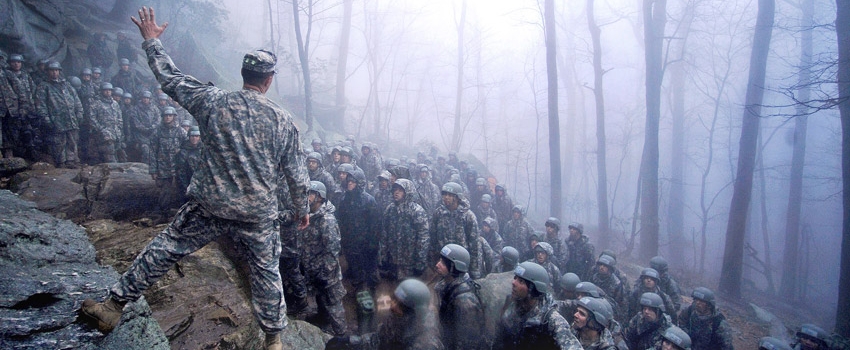
If you've been following me over the last few weeks, you know that I introduced the idea of incorporating the Principles of War as a means of dealing with PTSD. In doing this, my hope is to help you achieve a deeper level of thought about how you might go about choosing methods for your healing. By introducing a single Principle of War, in a series of posts over the next several weeks, I am giving you a new set of criteria that you can use to evaluate the possible courses of action that you choose for your healing journey.
I realize it may sound a bit counter productive to use war principles for healing an anxiety disorder, but allow me the opportunity over the next few weeks to expand this thought and see if this might apply to you or someone you know that might be working to rid their life of this disorder. If you continue to follow this series, you can save time with future posts by going directly to the bold text highlighting the week's highlighted Principle. This week we look at the principle of:
Economy of force - Allocate minimum essential combat power to secondary efforts
In a previous blog, I shared an article from the Archives of Psychiatry that suggested, warriors with PTSD were demonstrating reduced concentration and attention in their behaviors. A lot of this behavior can be linked to the cause of an unregulated amygdala, the alarm center of our brain. In this weeks blog, I'd like to focus on how we can reduce the distractions to our attention and begin to truly zero in on what is most important in our healing process, calming our minds. In a sense, I want to list and bring attention to the things that we can absolutely control in our lives. It is the idea of employing the principle Economy of Force that allows us to know there are things we should focus on and there are those things that may seem important or scream for our attention and get us worked up, but when we analyze them, we realize we have no control over them and they can sabotage our healing efforts. To make this relevant, I'd like to share with you an exercise I conducted with some warriors I am coaching.
In a group setting, I asked the assembled members to help "brainstorm" a list of things that make them angry and upset them in their daily lives. Here is a list of what they came up with:
- Lack of respect demonstrated by civilians
- People interrupting them in conversation
- People not being punctual (on time)
- People with lazy attitudes
- TV News
- Politicians
- The VA as a system
- Inability to do what they used to do before injury
After this list was compiled, I then had them conduct another "brainstorming" list. This time I wanted them to focus on things that they had control over in their lives. This list contained the following elements:
- What they ate
- Taking their medication
- How much alcohol they drank
- Tobacco use
- Their personal drive
- Self-talk
- How often and they type of exercise/therapy they do
- The people that they associated with
- When they go to sleep and wake in the morning
- What they read
After both lists were completed, I asked my warriors to identify the events and tasks on the ANGRY list that they had the ability to control 100%. We identified none! With that I asked them to tell me which of their CONTROL tasks that they are completely satisfied with and needed more attention. All items received some level of discussion, as you can imagine. So then I posed the following question to them:
How much emotional energy could you redirect from things that upset you towards the things that you can control?
Take Away
When healing with PTSD, your power comes from maintaining control over your emotions. Your success comes from achieving the Objectives you set for yourself. The more you fill your life with thoughts, actions, and accomplishments that focus on the things you can control, you have less time available to allocate toward the things that keep you anchored in the past. Take a look at your own list and see where you can employ Economy of Force.
